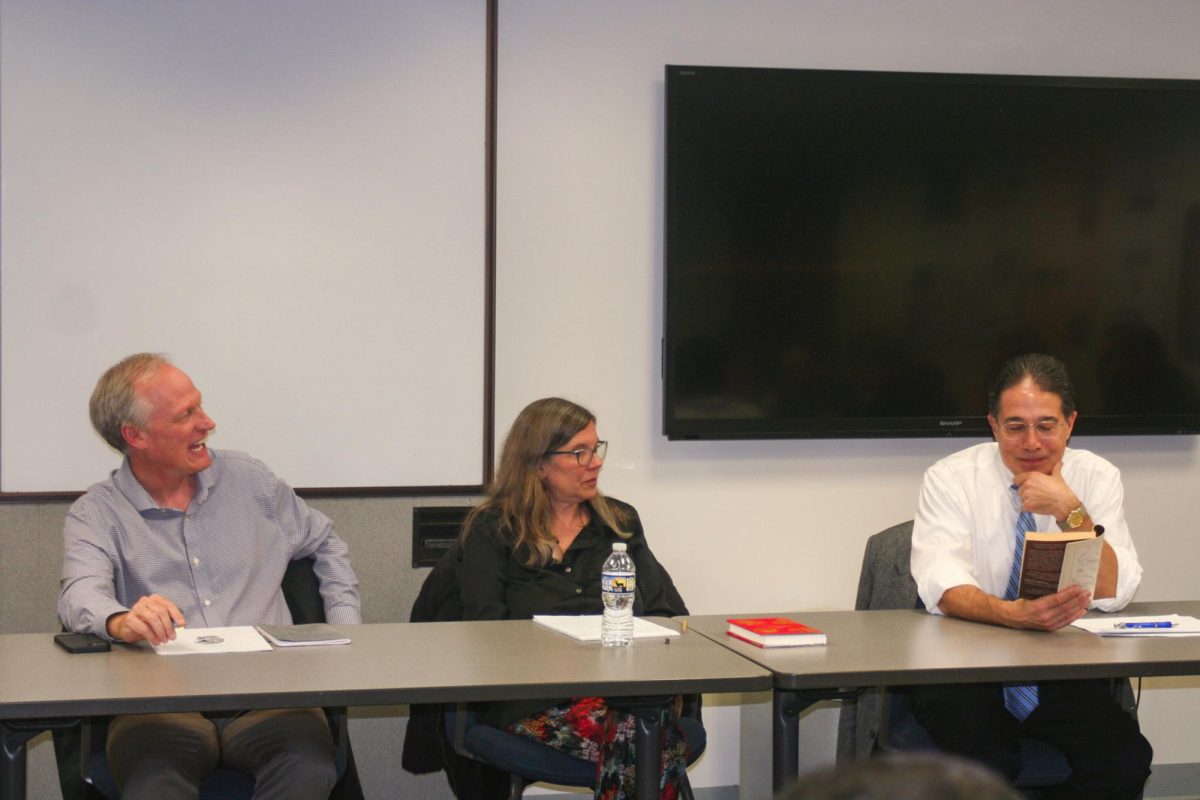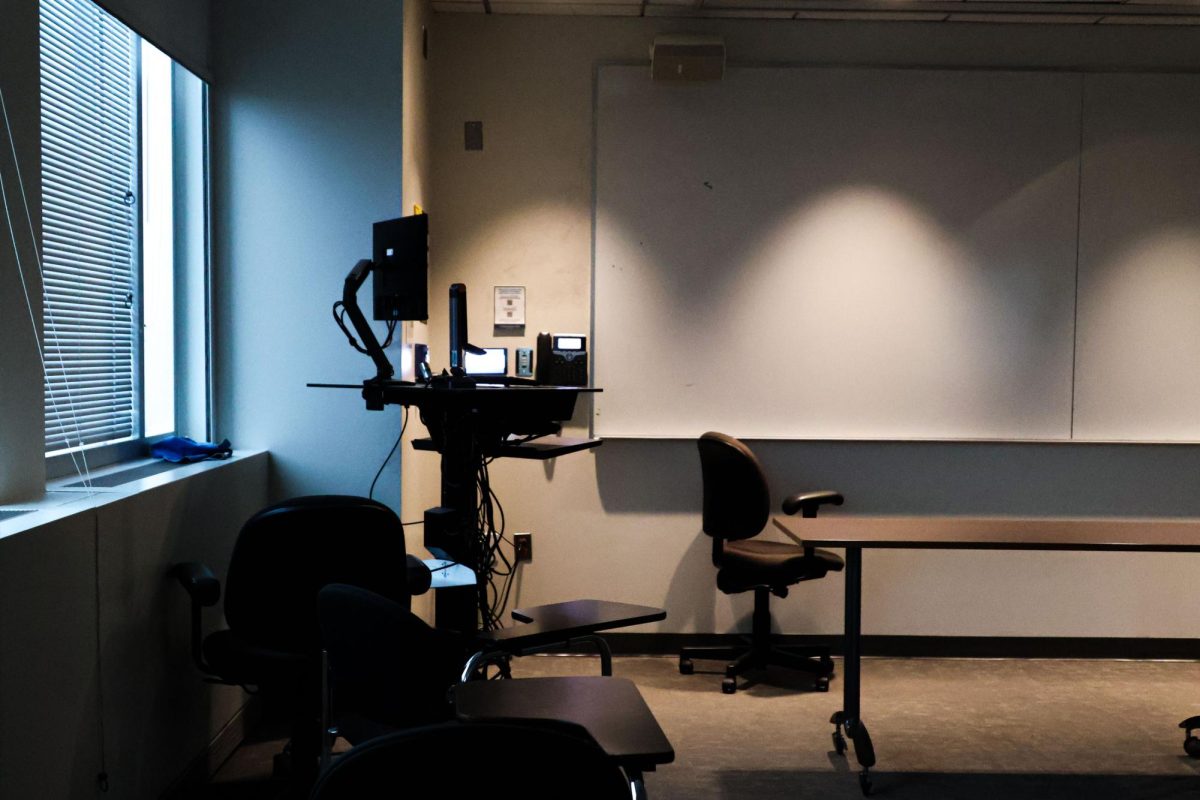Students for Indigenous and Native American Rights hosted a series of programming last week to commemorate Native American Heritage Month and the 100th anniversary of the U.S. government’s recognition of Native Americans’ citizenship.
SINAR hosted events like film screenings, art exhibitions and lectures related to Native American history as part of the annual observation of the month. Leaders of the organization said they focused the programming, which was themed “Native American Citizenship, 100 Years Strong: Resilience and Progress” this year, on educating attendees on Native American history and hope more people take an interest in learning about the community to understand the current challenges Native Americans face.
Senior Julia Swanson, SINAR’s president, said this year’s programming centered on highlighting the histories and cultures of Indigenous people outside of the D.C. area, a pivot from last year’s programming that focused on Indigenous peoples within the D.C. metropolitan area. Swanson said the student organization’s executive board always directs the month of programming because SINAR is the only organization dedicated to serving Indigenous students.
“It’s pretty, pretty chaotic,” Swanson said. “I think, not necessarily chaotic, just busy, hectic, because, since we’re the only Indigenous-focused org on campus, it’s an entire month of programming that essentially comes down to like five people planning it.”
Congress officially recognized November as National American Indian Heritage Month in 1993 because it traditionally concluded the harvest season with the Thanksgiving holiday. Swanson said this year marks the 100th anniversary of the Snyder Act, which Congress passed in 1924, that granted citizenship to all Native Americans.
“I think definitely the number one is education, awareness because there’s not a significant native presence here on GW’s campus,” Swanson said. “It’s really just about taking advantage of this month.”
The week consisted of seven events both on and off campus, with some hosted by SINAR and others by local organizations like the Center for Native American Youth from Tuesday to Thursday. The organization’s programming included collaborations with the Foreign Film Society for a film screening of the 2023 movie “Frybread Face and Me,” about a 12-year-old Navajo boy who spends a summer on his family’s reservation which had a predominantly Native American cast and crew.
The week’s programming schedule listed two events hosted by the Department of History including a discussion Wednesday with Camilla Townsend, a history professor at Rutgers University, about the misconceptions surrounding the history of the Aztec people — part of the department’s annual Diana Silvia Rodríguez Lecture series, which features distinguished scholars in Latin American history. The schedule also included a Native American Heritage Month celebration at the DACOR Bacon House, which about 30 community members attended, where speakers discussed the Department of State’s efforts to protect and promote tribal sovereignty.
Swanson said Multicultural Student Services Center supported the organization when they planned programming.
“I’d say they’re like the best or only branch of the school that makes efforts to reach out to us and help us with planning for this, which is great because just for a smaller org, smaller group on campus, like any kind of administrative support is great,” Swanson said.
Sophomore Jacob Brittingham, the vice president of SINAR, said some students believe SINAR is a space only for Native American students, but the organization provides a space for both Indigenous and nonIndigenous students and he encourages all students to attend the organization’s future programming.
The organization will host a Red Shawl Day Acknowledgement Tuesday in the MSSC to raise awareness of the Native American women who go missing and are murdered at a rate more than 10 times higher than the national average.
“SINAR is for everyone,” Brittingham said. “It’s for allyship. It’s for those who are curious.”
Senior Natalia Mejia, a member of SINAR, said she attended the lecture on the Snyder Act with David Silverman, a professor of history, which about seven students attended, because she plans on taking a class with him next semester and wanted to learn about the history of Native American citizenship and their difficulties gaining recognition as U.S. citizens because she didn’t know much about it prior.
“I think that’s my main takeaway. It’s like not understanding how deep rooted like America’s, like violence towards Native groups by not giving them decisions until 1924,” Mejia said. “Even with that, it didn’t mean that they were treated as such, and that their land was still being stolen over and over again, still now.”
Senior Emily Zaphiro da Silva attended the event Friday on the Snyder Act, and said as someone from outside the U.S., she thinks people should learn about Native American history, like that millions of Indigenous people that died due to Europeans settling in the country, because it is not fully taught in school.
She plans on continuing to engage with the organization with their future programming because she wants to “get to know” the organization more and connect with more students on campus.
“I am looking forward to any other events they put together because I feel like this is very important,” she said. “GW students should get more involved in Native American Rights. Land acknowledgement is not enough.”
Senior Lauren K. Harris, the SINAR communications coordinator, said the month is an acknowledgement of existing Indigenous culture, which has faced repressive tactics from the U.S. government to weaken cultural practices and remove Indigenous communities from their land.
“We haven’t died out,” Harris said. “We haven’t been fully annihilated, that we’re still existing.”





